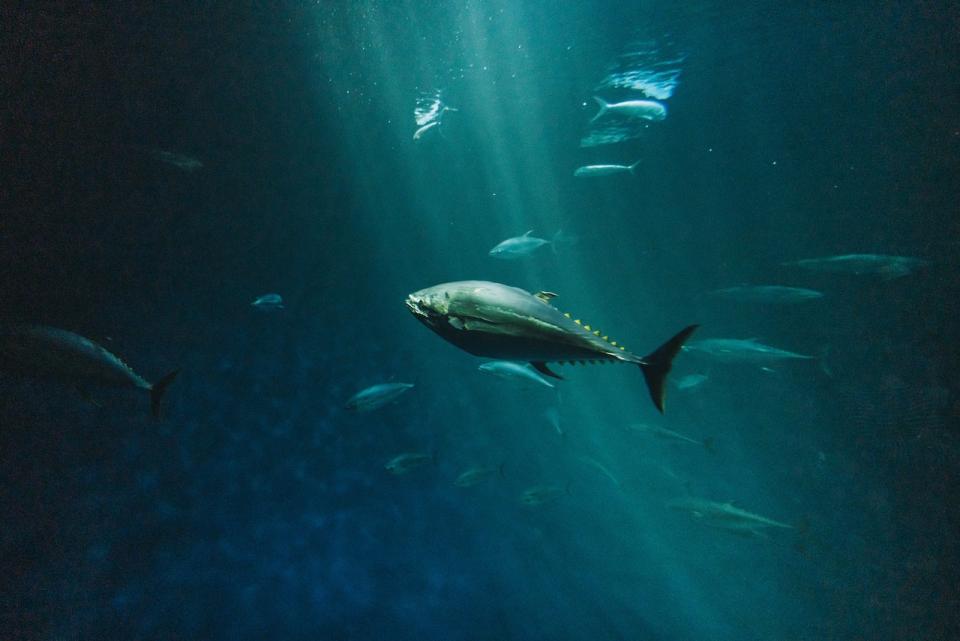
Protecting the world's marine biodiversity
Research by Aberystwyth University on the genetic definitions of fish species and stocks across the world has led to better management of fish stocks, helping to conserve marine biodiversity and bringing economic benefits for fishing communities.
Many fish stocks are low or threatened, including globally significant commercial fish such as some species of tuna. This is partly because fishery boundaries were originally set on geopolitical lines, which do not always accurately reflect the numbers and movements of fish populations
For example, yellowfin tuna are listed globally as 'near-threatened'. However, while tuna in the Indian Ocean are recognised as being overfished, tuna in the Atlantic Ocean are not.
To prevent overfishing, ensure a sustainable supply of food and protect local economies, we need accurate data on which fish stocks are threatened and where.
DNA techniques
The research team at Aberystwyth University used advances in DNA techniques to produce genetic definitions (DNA markers) of fish species and stocks. They worked with fishery managers, government agencies and non-governmental organisations (NGOs), using the DNA markers to accurately define fish origins and species.
The team provided stock definitions and advice for finfish, shellfish and cephalopod fisheries in the Western Indian Ocean, NE Atlantic (including the UK), North America, Chile, Brazil, South Africa and Angola.
The genetic definitions provided by the team led to legislation and policy changes that improved how fisheries are managed.
Protecting yellowfin tuna
The team's study of yellowfin tuna showed that the Indian Ocean stock is genetically distinct from the Atlantic Ocean stock but extends into the southeast Atlantic.
The boundary followed by the fish is set by the Benguela Current rather than the geopolitical boundary lines of the fisheries. In light of this discovery, the Indian Ocean Tuna Commission and the International Commission for Conservation of Atlantic Tuna changed their boundaries. As well as improving how yellowfin tuna are managed, this information changed awareness and practice in other organisations, such as the World Wildlife Fund.
More sustainable fishing
The Falklands Islands used genetic definitions of their fished stocks to change their sustainable catch regulations. These changes led to improved sustainability and a rise in commercial value: vital as income from fishing makes up 50% of the Falklands' economy.
The research team's work has shown fishery managers, governments and NGOs how they can manage natural resources in a sustainable way. As a result, the team have been commissioned to do further studies on the genetics of fishery populations.
Ultimately, the team's work has helped secure the future of multiple fish and shellfish species globally. This has economic benefits for fishing communities and is helping to conserve marine biodiversity.
Research team
Professor Paul Shaw and Dr Niall McKeown – Aberystwyth University
Research partners
Bangor University, University College Cork, Bord Iascaigh Mhara (Ireland's seafood development agency), Foras na Mara Marine Institute (Ireland's marine research and development agency), Swansea University
